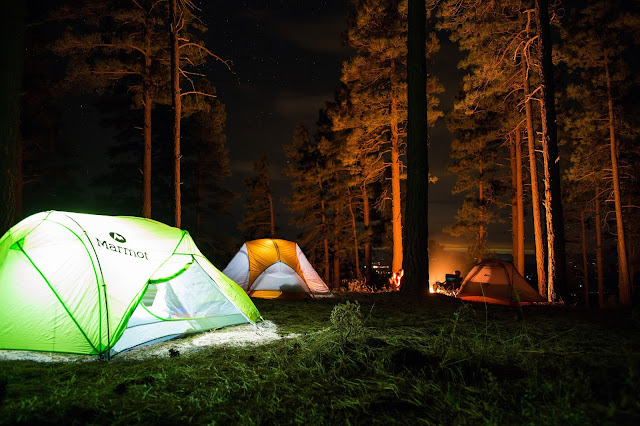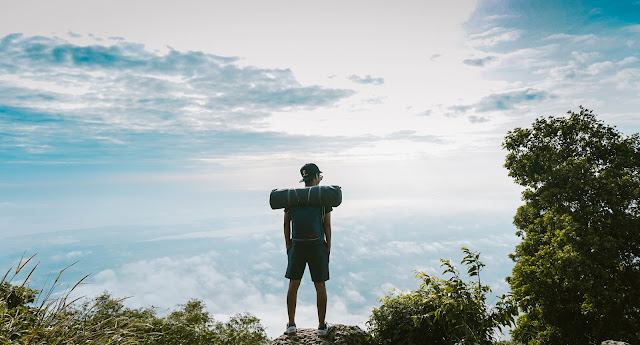Locking Up Your Tent and Other Campsite Security Tips
Your trip to the great outdoors is invariably full of fun and adventure, but the threat of thieves and campsite kleptomaniacs is a real possibility. There are enough cases of self-centred campers who spoil the fun for everyone by getting into things they shouldn’t. There isn’t a camper out there who hasn’t thought deterrents were necessary.
It is essential to understand that the dynamics of a campsite work differently from those in a home with stable walls windows. The campground is an easy target for thieves and marauders. Many tactics and safety precautions used by Bedouins and travelling merchants in ancient times can keep you and your valuables safe when attending off-site events, adventuring in wild country or sleeping under the stars.
This guide to campground safety will allow you to improve your security around the campsite and during your outdoor adventure with simple best practices and common sense.
1. Locking Up
A variety of locks, including some cable locks and some that feature alarms, is an excellent way to keep bikes, BBQ grills, and portable refrigerators from being walked away. Fridges can be trapped and secured as well and keeping everything tied down, locked up and in order is an essential part of sending a message to any potential thieves.
2. Locking Up the Tent
Locking up the tent sounds simple enough, you place a small padlock on the zippers and done. However, is this an effective security feature? Here we will talk about protecting all your necessary camping belongings like bedding, clothing, lanterns and such. Valuable gear, backpacks and mobile devices should never be left unattended.
To protect these items, should you lock up the tent? Probably!
Here are some points to consider...
A zipped-up tent tells a potential thief there could be something worth stealing and if the campsite is empty, he may have time to pop in and look around.A tent that is zipped up and closed with a padlock can tell the thief he has less time to make a thorough investigation and looting, but the rewards for doing so could be higher. This may lead them to produce a small box cutter and merely slice their way into the tent from the side or back.
A zipped up tent means that there is nothing visible to interest a passerby. So, you can see there are two different schools of thought on keeping safe by locking your tent. Some people are also concerned about leaving their tents unlocked at night and the possibility of someone entering and grabbing valuables from under the camper’s nose.
The problem with locking the tent while there are people inside is the fact that it can make an escape difficult in case of a fire, flash flood, falling tree limbs or another emergency. When choosing to lock up your tent or not, it will be essential to apply some of the other safety measures as well.
3. Keep it in the car
If you are away from the campsite for the day, consider that anything left lying around will be gone when you get back, this is not always maliciously either a well-meaning camper may pick up the loose gear and turn it into the park managers or authorities on their way out.
With this in mind, never leave anything lying around you can’t afford to give away. Lock up sleeping bags, extra bedding and other camping gear in the car during your stay. Camping far away from others will reduce the chances that people will come to your camp spot, but if they do you don’t want to give them any handouts.
If you are in a crowded campsite or trendy event, you should never step away from your tent without picking up your valuable items. The same thing at night never go to sleep without locking up all precious items.
4. Keep Your Gear Close and Organized
Another great way to ensure that your personal belongings don't go missing is to have an organisational plan in place. If you know where everything is and the most valuable things are kept closest, it will be easier to ensure that nothing goes missing. If something is left out and away from your camp spot, someone may think it is neglected and just take it. The higher the risk, the closer you will want to keep your gear.
Get to Know your Neighbors.
The best defence you can have is a positive relationship with the campers in your vicinity. Introduce yourself when they arrive, ask if they need help to set up, a can opener or maybe some salt for their hard-boiled eggs. Always take the time to establish a good connection which builds trust and camaraderie. By knowing each other’s sites and setups, you can better help to keep an eye on each other.There’s always a chance that one of your fellow campers will be a thief. So never let your guard down for a second. But, if you know who to expect nearby, you will have a better understanding of doesn’t belong on your site and could, possibly, be trouble.
Practice Common Sense
The best thing you can bring along with you on your trip is plenty of common sense; this often translates in slowing down your pace to one better suited for a slightly unfamiliar environment. This will allow you to consider the consequences before leaving a BBQ grill full of tasty meats unattended while you run back to the car for extra Cayenne Powder.The same goes for all your valuables and especially whatever you may leave in your tent. If you are leaving your shelter unattended, think of what you can do to make your losses minimal. It would often be better to leave it open, and uninteresting rather than have the sides of your tent slashed in a nefarious attempt to see if you have any valuables hiding in your tent.
Keep Safe and Happy Camping!



Comments
Post a Comment